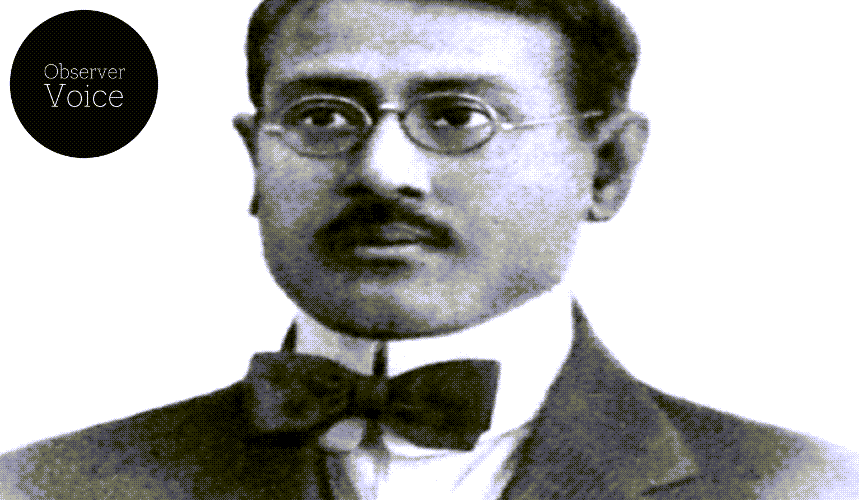Bhupendra Nath Datta (4 September 1880 – 25 December 1961) was an Indian revolutionary and later a noted sociologist.
EARLY LIFE
Bhupendra Nath Datta was born on 4 September 1880, in Calcutta, Bengal Presidency, British India. He was admitted to Ishwar Chandra Vidyasagar’s Metropolitan Institution. He joined the Brahmo Samaj under Keshub Chandra Sen and Debendranath Tagore. He met Sivanath Sastri here, who influenced him a lot. Brahmo Samaj shaped Datta’s religious and social beliefs, including belief in a casteless society, a single God, and revolt against superstitions.
REVOLUTIONARY ACTIVITIES
In 1902, Datta joined the Bengal Revolutionary Society, which was founded by Pramathanath Mitra. He became the editor of Jugantar Patrika in 1906. The Revolutionary Party of Bengal used this paper as its mouthpiece. During this time, he became close to Sri Aurobindo and Barindra Ghosh.
British police arrested Datta in 1907 and he was jailed for a year for sedition. He leaves India in disguise and goes to the US after he’s released in 1908. He stays at India House in the US. Then he finished his post-graduate studies here and got a master’s degree from Brown University.
He joined the Ghadar Party of California and studied socialist and communist ideas. He started revolutionary and political activities in Germany during World War I. In 1916, he became secretary of the Indian Independence Committee in Berlin. He was the secretary of this organization until 1918. In 1920 he joined the German Anthropological Society, and in 1924 he joined the German Asiatic Society.
In 1921, Datta joined the Comintern in Moscow. The Comintern was also attended by Manabendra Nath Roy and Birendranath Dasgupta. In the Comintern, Datta presented a paper on modern Indian politics to Vladimir Lenin. In 1923, he got a doctorate from Hamburg University.
After that, he went back to India and joined the Indian National Congress. From 1927-28, he became a member of the Bengal Regional Congress and in 1929, he joined the All-India Congress Committee. He proposed a fundamental right for Indian farmers at the Indian National Congress conference in Karachi in 1930, and Jawaharlal Nehru’s Congress Committee approved it. Two of the All-India Trade Union Congress’ annual conferences were chaired by him. As a result of his political activities, he was arrested.
He wrote books on sociology, history, politics, etc. He wrote books in Bengali, Hindi, English, German, and Iranian. He wrote a few notable books, like “Swami Vivekananda, Patriot-prophet” (1954), Baishnaba Sahitya Samajatattva (1945), and Studies in Indian Social Polity Nababharat Publishers (1983), etc.
DEATH
He died on 25 December 1961, in West Bengal, India.
Read More: 4 September: Remembering Dadabhai Naoroji on his Birth Anniversary
Read Also: 3 September: Kiran Desai an Indian author

